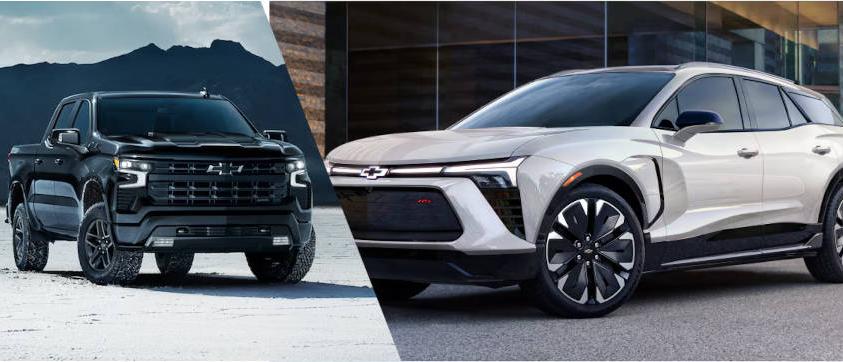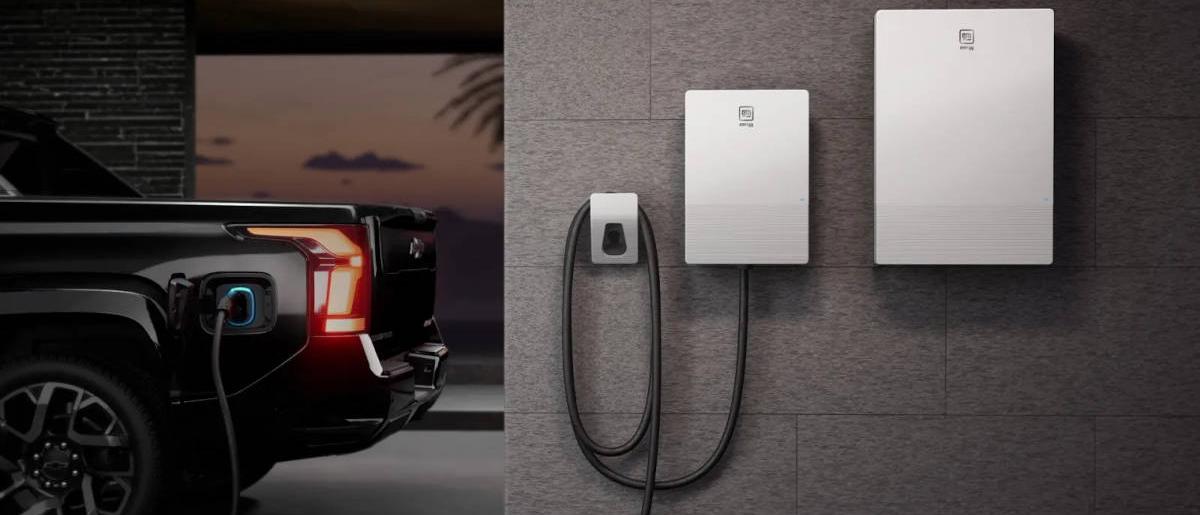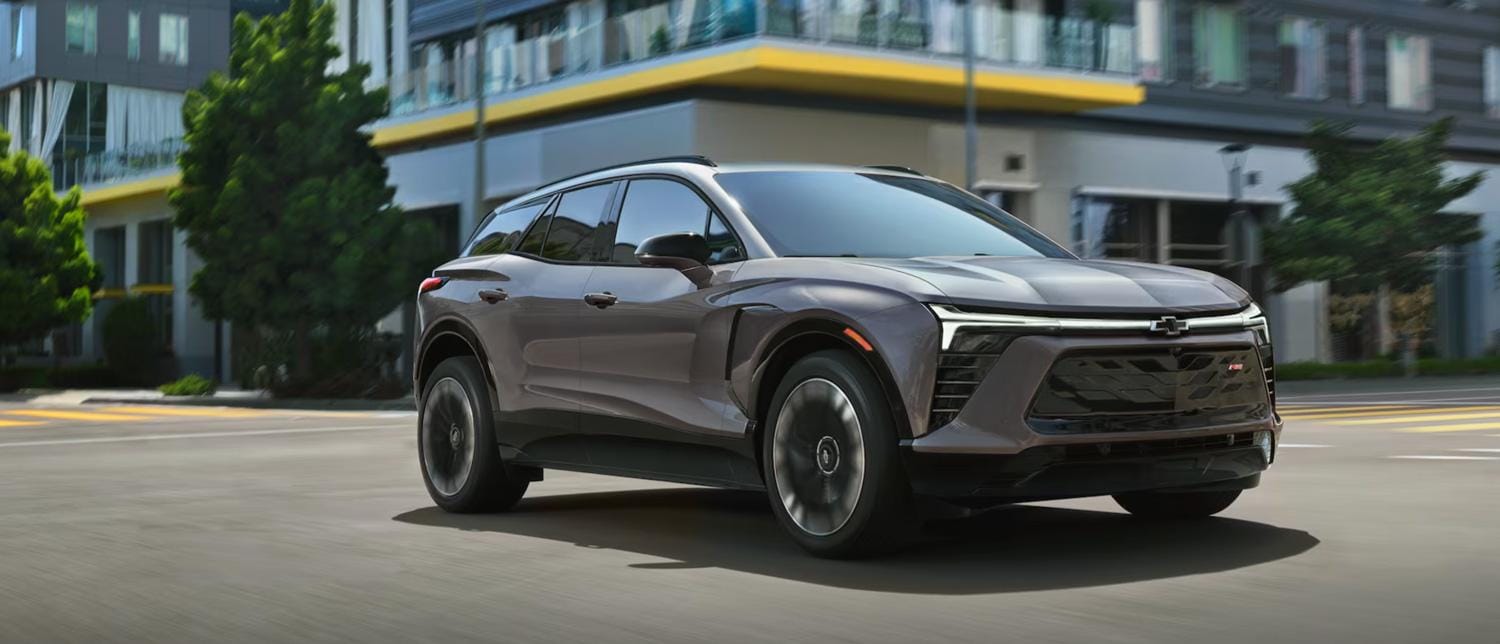

ELECTRIC CARS VS. GAS CARS: IS AN EV MORE AFFORDABLE?
The debate between electric cars vs gas cars has been in the making for years, with some drivers claiming their EV is cheaper and other ICE owners saying the same. Between the two configurations, you may find that gas cars cost less right away, while electric nameplates save you more money in the long term. Whatever the case, we're here to clear things up for you regarding electric cars vs. gas cars. Stay tuned.
ELECTRIC VS. GAS CARS: THE DIFFERENCE
When it comes to choosing between a gas and electric vehicle, there are many factors to consider. First, are you interested in never heading to the gas station again, especially with rising fuel costs? If so, an electric nameplate may be a better option for you. That said, are you not close to many electric charging stations and can't install a Level 2 model in/at your residence? If that's true, an EV may be too big of a jump from gas driving.
Gas cars vs. electric cars are much more than their title. It is how you maintain, drive, refuel/charge, and move on the road daily. It's a significant change, whichever way you go.
- Electric cars: 100% battery powered (need electricity)
- Gas cars: 100% engine powered (need fuel)
GRASPING THE INITIAL COSTS
As one of the first hurdles you'll need to overcome when purchasing an electric car vs. gas car today, the initial price point may be steep. Typically, EVs are more money on average compared to ICEs. Specifically, the average cost of an electric model in the US is ~$50,000, while a gas vehicle tends to hover closer to $34,000.
Based on the above figures, that's a $16,000 difference. For many, this may be too much of a climb to justify switching from gas to electric, battery-powered driving. The caveat is that EVs will be cheaper to maintain long-term and in their first ten years on the road, but battery replacements can also be very costly.
COST OF ELECTRIC VS. GAS CARS EXPLAINED
For anyone who's recently browsed electric or gas vehicles at the dealership, you may have noticed that EVs have higher-than-average sticker prices compared to gas nameplates. This is not your mind playing a trick on you: Electric vehicles are more expensive than gas ones. You might be able to find an entry-level trim EV for ~$45,000, although a similar-sized gas car will likely start at far less.
The auto market has been flooded with electric cars, trucks, and SUVs, slowly reducing costs. That said, we do not expect EVs to become cheaper than ICE vehicles anytime soon.

ELECTRIC VS. GAS CAR STICKER PRICES
When explaining the price of electric cars vs. gas cars, trucks, and SUVs, you will usually see higher MSRPs for EVs. As we shared, the average US price of an EV hovers around $50,000. Per reports , you can expect to pay $48,430 for the low-end trim of each model and $64,936 for the high-end trim of America's top ten electric vehicles, making them pretty expensive even at the low end.
However, the average price of a gas vehicle in the United States is around $34,000-$35,000. That is a big difference, with many entry-level ICE trims retailing for under $25,000. Again, this isn't to say the market will always be like that, and we have seen electric vehicle pricing fall in recent years.
ELECTRIC VS. GAS MAINTENANCE FEES
Regarding maintenance fees and frequency for electric cars vs. gas cars, you will have fewer appointments and lower annual costs when driving an electric vehicle. According to Consumer Reports , the average cost to own an electric nameplate is ~$900 yearly, while gas vehicles cost about $1,200 yearly. This is a $300 difference in ownership, with the Office of Renewable Energy and Energy Efficiency placing EV maintenance at around $0.06 per mile. It's very cheap to deal with an electric vehicle.
The same can't always be said about ICE/gas-powered vehicles. Especially as they age, you may have major repairs every 12 months, totaling thousands of dollars when all is said and done.
- Which is cheaper to maintain?: Electric vehicles

ENVIRONMENTAL IMPACT
When it comes to the overall environmental impact of electric cars vs. gas cars, this is where their differences contrast the most. Because you don't have fuel going into an EV, you will not see exhaust/emissions coming out of it. The average gas car omits up to 4.6 metric tons of CO2 annually. This is not great news on a large scale, especially with hundreds of millions of gas cars doing it together. EVs produce zero emissions throughout the year and rely solely on electricity to charge.
Even all-electric models, due to their charging and electric needs, produce an average of 3,932 pounds of emissions in an average year, so you aren't ever going to be 100% pollution-free when driving. However, you pose less of a problem by choosing to go electric.
ELECTRIC VS. GAS CARS: CONVENIENCE COMPARISON
Moving onto the convenience of electric cars vs. gas cars, there are good arguments for both directions. In general, people feel gas vehicles are easier to refuel, as there are gas stations everywhere across the world. Even in remote towns or along highways, you can locate a gas station, which is only sometimes the case for charging stations. We have seen many EV stations pop up across North America in recent years, with Tesla being a major player. As of 2024, there are around 50,000+ Superchargers in existence and close to 65,000 total charging stations scattered throughout the United States.
Even then, there are an estimated 196,643 gas stations in the United States as of this year, with numbers expected to rise. Even with rising prices, gas is still heavily needed by most American drivers. Electric cars are a much smaller percentage of the population, so there won't be as many charging stations available compared to your typical petrol station.
- Which is more convenient?: Gas vehicles
CHARGING VS. FILLING
For anyone wondering the difference between electric car and gas car charging and filling, you will spend more to fill your tank than someone does to charge their battery. With rising fuel prices globally, most people can't find gas for less than ~$4. In some states, you may spend over $5 per gallon of fuel, which can easily exceed $100 to fill the tank on larger models. The same can't be said about electric nameplates.
According to energy reports, EV owners will spend around $56 monthly and $674 yearly if they only charge at home. Some gas drivers pay $674 monthly on fuel, so having an electric model that uses so little energy to recharge and has lower costs is a major pro. One reason drivers who switch from ICE to EV vehicles don't regret their decision is the fuel savings. That could make a higher initial MSRP worth the splurge.
CARS AVAILABILITY
When it comes to the availability of EVs versus gas models, this is where the discussion may turn in ICE's favor. With electric nameplates still being the minority in the auto industry, you won't have as many to choose from, or any at all, depending on your location. Just because a dealership may be tied to a brand that builds electric cars, trucks, and SUVs, this doesn't always assure you that EVs will be in stock for you to check out in person. One example is how Tesla will ship electric models to those not near a showroom. You may never get to test drive a vehicle before paying a deposit and receiving it in the mail, which ICE drivers rarely experience.
However, the car industry is rapidly moving towards electrification, with brands including Chevrolet slowly adding semi and all-electric nameplates to their catalogs. By 2030, we expect the EV market to be much larger and easier to find for most US drivers compared to its current state. After all, only ~1% of vehicles on the road are electric as of 2024.
TOWING
Regarding towing estimates and ability between electric cars vs. gas cars, engine-powered vehicles will tow better than battery-powered ones. Because more weight can cause a battery to drain faster, most EV drivers tend not to haul trailers, oversized items, or other vehicles inside or behind their cars. ICE owners don't have to worry as much about this, as fuel ratings won't decrease as dramatically with added weight to a car, truck, or SUV. Both types of models will tow just fine, although more range loss is expected in an electric vehicle.
GET YOUR EV OR GAS CHEVY AT COLONIAL CHEVROLET
Now that we've explained the differences between electric and gas models, there's no better time to visit your neighborhood Chevrolet dealer, Colonial Chevy , to test drive both. We sell all types of vehicles, so you can see which is better for your lifestyle and driving habits.
Whether you have an EV and want to upgrade, drive an ICE, are sick of gas prices, or have questions for our team, we'll be here to help. Come by Colonial Chevrolet in New London, CT, today!